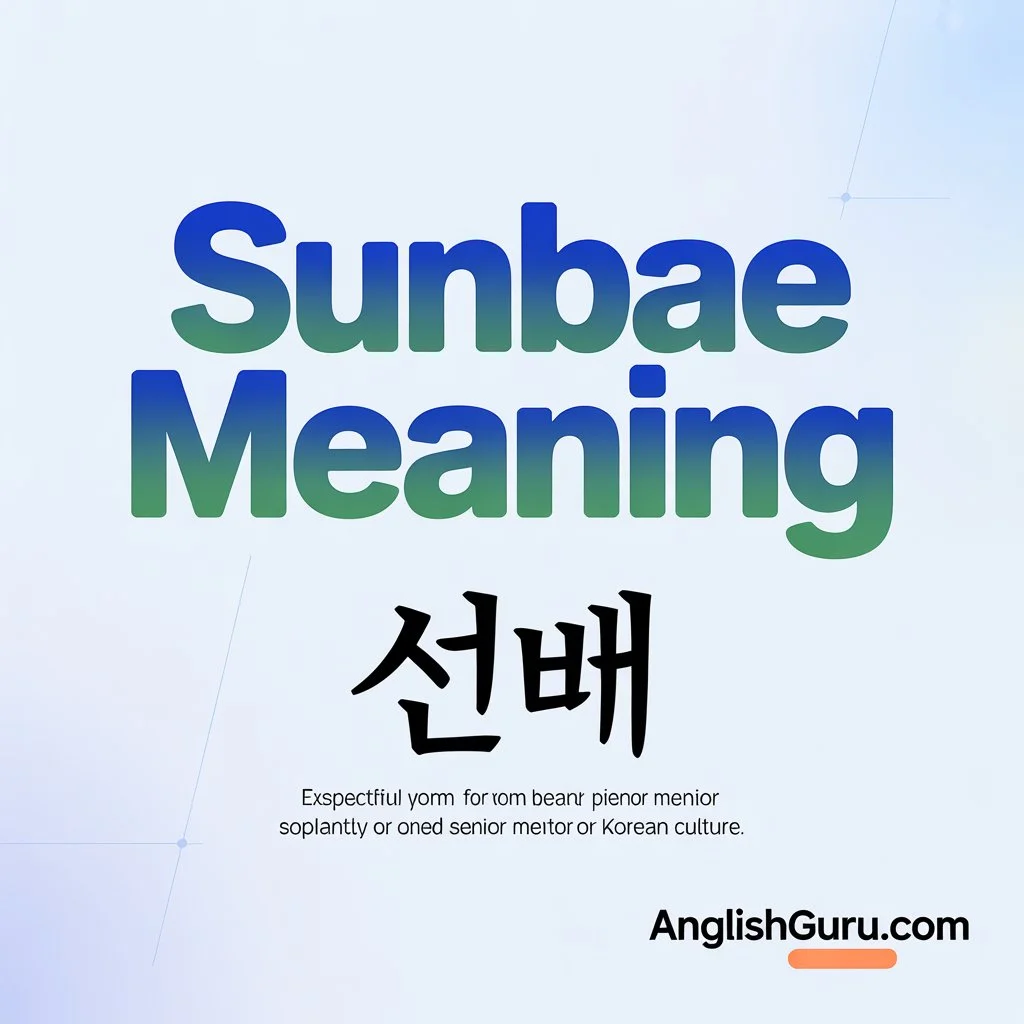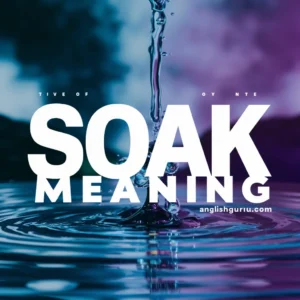The term “Sunbae” has become increasingly recognized worldwide, thanks to the rise of K-pop, K-dramas, and Korean culture. But what does Sunbae truly mean, and how should it be used respectfully? While it’s often heard in Korean conversations or seen in popular dramas, the real Sunbae meaning carries deep cultural and social significance that goes beyond a simple title.
At its heart, Sunbae represents respect, seniority, and mentorship — key pillars of Korean social etiquette. This word, rooted in Confucian values, defines how people interact in schools, workplaces, and even online communities. Understanding Sunbae isn’t just about translation — it’s about learning the spirit of respect that shapes Korean communication.
This guide will walk you through the true Sunbae meaning, its cultural roots, modern usage, and 17+ respectful alternatives you can use in professional, friendly, and global contexts. Plus, you’ll find 11 texting examples showing how to use Sunbae meaning naturally in conversation.
What Does “Sunbae” Mean? — Understanding the Real Sunbae Meaning
The Sunbae meaning (선배 in Korean) literally translates to “senior” in English. It refers to someone who has more experience or has been part of a group longer — such as a senior student, a senior colleague, or even a mentor figure.
However, Sunbae is more than just a label for seniority. It embodies mutual respect and hierarchy, reflecting how relationships function in Korean culture.
Example:
“Leo is my Sunbae at work — he’s been here five years longer and helped me adjust quickly.”
The Origin and Cultural Context Behind the Sunbae Meaning
Korean Hierarchy and Social Respect in the Sunbae Meaning
The Sunbae-Hoobae system stems from Confucian values, which emphasize respect for elders and those with more experience. This framework isn’t about power — it’s about balance, guidance, and humility.
Example:
“Henry called his upperclassman Sunbae-nim (adding –nim makes it more respectful).”
Sunbae vs. Hoobae — Understanding This Relationship’s Meaning
- Sunbae (선배): Senior or mentor figure
- Hoobae (후배): Junior or mentee figure
This relationship defines how respect and mentorship coexist in Korean social dynamics.
Why the Sunbae Meaning Matters in Modern Culture
The term Sunbae holds global importance now, especially as K-culture spreads worldwide. Understanding it helps avoid cultural misunderstandings and promotes respect when communicating with Korean peers or fans.
Why it matters:
- It builds trust and harmony in multicultural communication
- It helps you navigate Korean workplaces and online spaces smoothly
- It shows cultural intelligence and respect
When to Use the Word “Sunbae” — Contexts That Define the Sunbae Meaning
While Sunbae is a respectful term, it should be used carefully.
✅ When to Use It
- When addressing or talking about someone senior in your school, office, or community
- When referring to someone with more experience in a shared field
- When showing admiration toward a mentor or senior artist
❌ When Not to Use It
- When you don’t share the same environment (like calling a stranger Sunbae)
- When the tone might sound sarcastic or insincere
- In formal writing, use professional alternatives instead
Cultural Sensitivity and Proper Etiquette in the Sunbae Meaning
Korean culture places great emphasis on titles and forms of address. Saying “Sunbae” isn’t just a word choice — it’s a gesture of acknowledgment and social awareness.
Tips for Respectful Use
- Add “-nim” (Sunbae-nim) for extra politeness
- Avoid using Sunbae casually unless you know the person well
- Never refer to yourself as someone’s Sunbae — it can sound arrogant
🟩 17+ Polite, Professional & Casual Alternatives to the Sunbae Meaning
Whether you’re writing an email, texting a friend, or addressing someone from another culture, here are 17+ polite and natural alternatives to the Sunbae meaning, organized by tone and context:
1. Senior
Tone: Neutral | Best for: Professional settings
“Leo is my senior in the marketing department.”
2. Mentor
Tone: Polite | Best for: Career or learning contexts
“Henry has always been a mentor to me throughout my career.”
3. Teacher
Tone: Formal | Best for: Academic or respectful dialogue
“She’s not just my colleague but also my teacher in many ways.”
4. Senior Colleague
Tone: Professional | Best for: Business communication
“My senior colleague, Leo, guided me during my first project.”
5. Guide
Tone: Neutral | Best for: Training or learning settings
“Henry has been a helpful guide during my internship.”
6. Role Model
Tone: Appreciative | Best for: Personal or creative settings
“Leo is my role model — I look up to his discipline and attitude.”
7. Coach
Tone: Supportive | Best for: Professional development
“My Sunbae acts like a coach, motivating our entire team.”
8. Elder
Tone: Respectful | Best for: Traditional or cultural references
“In our community, elders are treated with the same respect as Sunbae.”
9. Experienced Peer
Tone: Friendly | Best for: Workplace or group contexts
“Henry, my experienced peer, always gives the best advice.”
10. Advisor
Tone: Professional | Best for: Corporate or academic use
“Leo has been my advisor throughout my training period.”
11. Inspiration
Tone: Warm | Best for: Personal tone
“My Sunbae has been an inspiration in how to balance work and life.”
12. Senior Partner
Tone: Corporate | Best for: Business or project collaborations
“I’m working closely with my senior partner on this campaign.”
13. Captain
Tone: Team-oriented | Best for: Group or leadership roles
“Henry, our team captain, embodies the true Sunbae meaning through leadership.”
14. Leader
Tone: Motivational | Best for: Professional or mentorship tone
“Leo is a natural leader and a Sunbae figure to all juniors.”
15. Predecessor
Tone: Formal | Best for: Business or legacy-based references
“I took over the role from my predecessor, who was my Sunbae.”
16. Senior Friend
Tone: Casual | Best for: Informal use
“My senior friend, Leo, taught me how to navigate university life.”
17. Idol or Influencer
Tone: Pop-culture | Best for: K-pop or creative contexts
“She’s my favorite idol and embodies the Sunbae meaning in her humility.”
11 Texting Examples Showing How to Use the Sunbae Meaning Naturally
- “Thanks, Sunbae! I really appreciate your help today.”
- “Leo Sunbae, your advice made my day easier.”
- “I learned so much from my Sunbae during training.”
- “Henry, you’re such a supportive Sunbae!”
- “My Sunbae always motivates me before presentations.”
- “Can I ask you something, Sunbae?”
- “Sunbae-nim, thank you for guiding me.”
- “Our Sunbae at work hosted a mentoring session.”
- “You’re my Sunbae, but you always treat me like a friend!”
- “I want to be a Sunbae who inspires others.”
- “Working with my Sunbae has taught me so much.”
🟨 How to Choose the Right AlternativChoosing the right term depends on context and relationship.
Here’s a quick reference
| Context | Best Alternatives | Example |
|---|---|---|
| Formal writing | Senior, Mentor, Respected Senior | “My mentor guided me through the process.” |
| Professional settings | Senior Colleague, Experienced Professional | “My senior colleague supported my first project.” |
| Friendly conversation | Role Model, Upperclassman, Sunbae | “You’re my Sunbae — always motivating me!” |
| Cultural/Creative contexts | Senior Artist, Veteran | “She’s a senior artist in the K-pop scene.” |
| Academic settings | Teacher, Guide, Elder | “Our teacher and eleldersseserve our gratitude.” |
🟥 Why the Sunbae Meaning Reflects Korean Culture
The Sunbae meaning embodies the Korean value of hierarchy blended with care. It represents trust, mentorship, and mutual growth.
Using it correctly shows awareness of the social structure that defines Korean communication — whether in K-dramas, classrooms, or offices.
🟧 Final Thoughts on the True Sunbae Meaning
The Sunbae meaning captures more than seniority — it’s about connection, guidance, and gratitude. In Korean culture, it represents the beauty of relationships built on respect and mentorship.
While “Sunbae” is rooted in tradition, it continues to evolve in global contexts — appearing in workplaces, online discussions, and fan communities. Using it (or its alternatives) thoughtfully ensures your message remains respectful, clear, and culturally aware.
Whether you call someone Sunbae, mentor, or senior colleague, what truly matters is the spirit of appreciation and humility behind your words.





